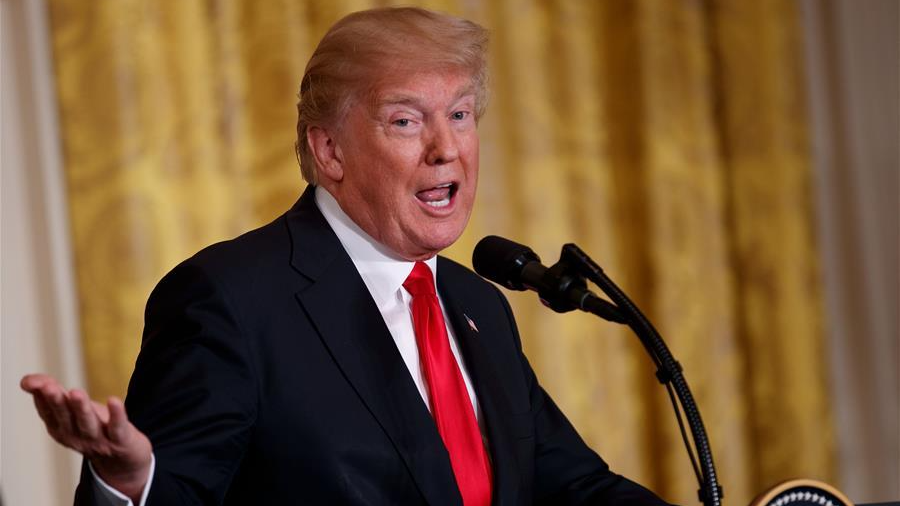
File photo of U.S. President Donald Trump. /Xinhua
File photo of U.S. President Donald Trump. /Xinhua
Editor's note: Sun Chenghao is an assistant research professor at the Institute of American Studies under the China Institutes of Contemporary International Relations based in Beijing. The article reflects the author's opinion, and not necessarily the views of CGTN.
House Republican's China Task Force led by House Minority Leader Kevin McCarthy unveiled another report full of pride and prejudice on September 30.
The report makes groundless accusations of China's development and offers more than 400 recommendations on how to challenge China in terms of ideological competition, supply chain security, national security, economics and energy, and competiveness.
It is not surprising to find that the report believes the engagement strategy, which based on the assumption that expanding the bilateral economic relationship with China would advance the U.S. national interest and lead China to change, has failed.
As early as in 2014 and 2015, the U.S. strategic community set off a major debate on China policy. China expert David Lampton's speech about China-U.S. relationship reaching a "tipping point" caused a ripple; then the U.S. think tank Council on Foreign Relations' report "Revising U.S. Grand Strategy Toward China" induced a debate on China policy in the U.S. academic circle, mainly discussing whether the past strategy of engagement with China had failed.
After Trump took office, the mainstream opinion has been leaning toward adjusting the engagement strategy. Although many scholars believe that this is a bipartisan consensus, there are still many China hands who attach great importance to the positive role of engaging with China. They are referred to as "panda huggers" by some people with ulterior motives, while anti-China hardliners are called "dragon slayers." In such a poisonous political environment, the moderate and rational voices in the U.S. have gradually faded.
However, Americans have long made wrong assumptions of the engagement policy which should be based on mutual respect and win-win cooperation rather than changing China by reaching China. If U.S. politicians refuse to abandon their pride in dealing with China, they will never get what they want from the engagement.

Nansha Port in Guangzhou, south China's Guangdong Province. (Xinhua)
Nansha Port in Guangzhou, south China's Guangdong Province. (Xinhua)
In fact, China is never a free rider in the bilateral relationship and it is unfair to claim that China's achievement comes at the expense of America.
For instance, even with China's rapid economic rise, America's overall share of global GDP has remained relatively stable over the past three decades. China's expanding share of global GDP is mainly due to Japan's and the European Union's shrinking share.
It is also not wise or effective for the Republicans to play the "China card" during the presidential elections. China Task Force's report is compiled because the Republicans are executing a 57-page campaign memo that recommends making China as the main theme during campaign and branding opponents as "soft on China." One consideration behind the accusation is to deflect blame for Trump's mishandling of COVID-19, which has caused over seven million cases confirmed and more than 200,000 deaths in the U.S.
To make matters worse, Trump just announced that he and his wife both tested positive for the coronavirus, striking a serious blow at his reelection campaign. It proves that blaming China will not save Americans from the pandemic; the true reason for Trump's failure in dealing with the virus is that he ignored suggestions from scientists while reopening the economy in a hasty manner.
Unfortunately, Trump and the GOP might not stop attacking China in the foreseeable future, especially when those governors and entrepreneurs are reconsidering when and how to reopen public facilities like restaurants, parks and bars, indicating a harder recovery process for the U.S. economy.
Trump testing positive for the coronavirus also proves that an effective vaccine is still far from available, shattering some people's expectation that the vaccine will be ready by the end of this month.
All these factors would increase Trump and the GOP's motive to create more prejudice and accusations on China and even push those recommendations in the report to eventually become law.
(If you want to contribute and have specific expertise, please contact us at opinions@cgtn.com.)